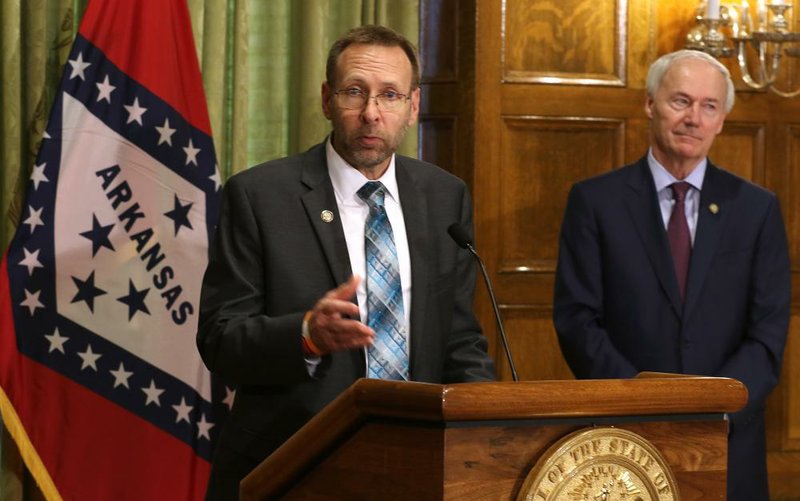Despite an order released Friday that allows elective surgeries in the state to resume Monday under certain conditions, the American Civil Liberties Union of Arkansas says it still has "serious concerns that [the order] will continue to act as a ban to abortion care."
Among other things, the order requires surgical patients to test negative for the coronavirus at least 48 hours before the procedure.
"While we are still reviewing the governor's latest order, given the widespread unavailability of testing, we have serious concerns" as to whether surgical abortions will be permitted again on Monday, the ACLU said Friday, shortly after Gov. Asa Hutchinson and state Health Secretary Nate Smith released the new directive.
On April 3, the Department of Health issued a directive that prohibited elective procedures -- those deemed not necessary to protect the health or life of the patient -- because of concerns over the spread of coronavirus.
[CORONAVIRUS: Click here for our complete coverage » arkansasonline.com/coronavirus]
The order applied to all non-necessary procedures at surgical facilities in the state. The ACLU sued the state on behalf of Little Rock Family Family Planning Services after the department conducted a surprise visit April 9 at the clinic -- the state's only provider of surgical abortions -- and declared that it had violated the order.
The legal action resulted in a federal judge enjoining the state from enforcing the directive and a cease-and-desist order against the clinic, calling it unconstitutional because it created an undue burden on women seeking abortions. Women in Arkansas cannot obtain an abortion in Arkansas after 21.6 weeks of pregnancy, and the ACLU said abortion is a procedure for which "you can't press pause."
However, the state appealed to the 8th U.S. Circuit Court of Appeals in St. Louis, and a three-judge panel dissolved the court order in a 2-1 decision Wednesday.
The ACLU has since filed an emergency motion on the clinic's behalf asking that abortions be allowed to proceed if the delay caused by the newest directive takes pregnancies beyond the 21.6-week legal cutoff for obtaining an abortion.
Friday's directive lists requirements and limitations for the resumption of elective procedures at surgical facilities. It emphasizes that facilities need to be aware of their capabilities, such as the number of beds, amount of testing available and the ability to obtain supplies as well as potential constraints such as the size of the current workforce, "while watching for possible subsequent waves of the virus, which may require a return to prior restrictions."
In addition to the 48-hour testing requirement, it limits elective procedures to those for outpatients, requires facilities to have a rating of I or II from the American Society of Anesthesiologists, requires no contact with coronavirus patients in the previous 14 days, requires patients to be asymptomatic for the virus under the department's guidelines, and requires the facilities to start slowly and gradually work up to a higher volume of cases as equipment needs and statewide incidences of the disease subside.
Also, each facility must have an "ample supply" of personal protective equipment while maintaining a reserve, which the order says is each facility's responsibility, not the Health Department's.
"These requirements pertain to all elective procedures, including dental, eye, nasopharyngeal, chest surgery, and colonoscopy," the directive states, without specifically mentioning abortion or any other surgical procedures.
It excludes rural hospitals with fewer than 60 beds as well as critical-access hospitals.
It notes: "The April 3, 2020 directive's exemptions for medically necessary procedures to preserve a patient's life or health also remain in effect."
At a news conference Friday, the governor didn't directly answer a reporter's question about how the new directives affect abortion providers. Smith noted that "not every facility is going to be ready" by Monday to comply with the 48-hour testing directive.
Metro on 04/25/2020
